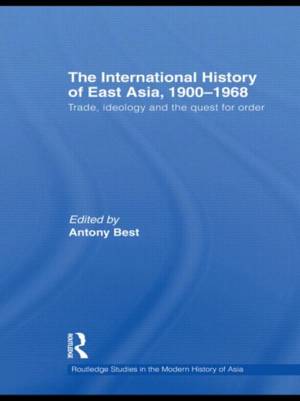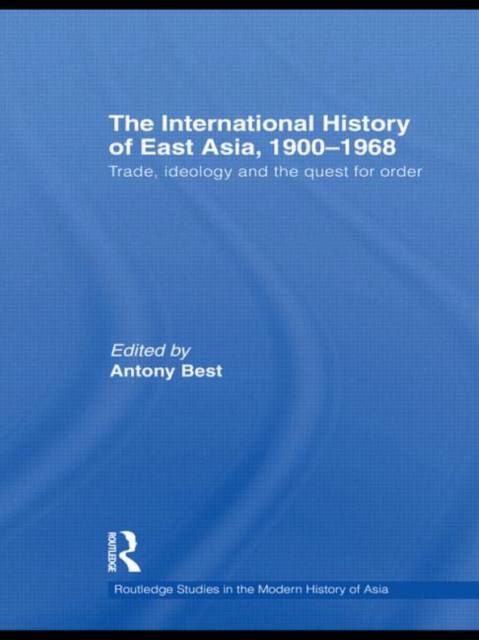
- Afhalen na 1 uur in een winkel met voorraad
- Gratis thuislevering in België vanaf € 30
- Ruim aanbod met 7 miljoen producten
- Afhalen na 1 uur in een winkel met voorraad
- Gratis thuislevering in België vanaf € 30
- Ruim aanbod met 7 miljoen producten
The International History of East Asia, 1900-1968
Trade, Ideology and the Quest for Order
Omschrijving
This book provides a broad account of the international history of East Asia from 1900 to 1968 - a subject that is essential to any understanding of the modern epoch. Whereas much of the scholarship on this subject has focused purely on the immediate origins and consequences of violent events such as wars and revolutions, this book demonstrates the importance of also considering other forces such as ideology, trade and cultural images that have helped shape East Asian international history. It analyses how the development of the region was influenced by ideological competition and 'orientalism', by both multilateral and unilateral efforts to instil order, and by the changing nature of international trade. It considers a number of important topics such as the concept of the 'open door'; the rise and influence of progressive internationalism in the forum of the League of Nations; the development of anti-colonial nationalism and anti-Western internationalism in the shape of pan-Asianism; and the onset of the Cold War. It also includes detailed case studies of subjects including the administration of the Chinese Maritime Customs Service; the international effort to regulate the trade in opium; and the significance of intra-Asian trade. Overall, this book constitutes an impressive account of the international history of East Asia, and is an important contribution to the interpretive study of this crucial period of history.
Specificaties
Betrokkenen
- Uitgeverij:
Inhoud
- Aantal bladzijden:
- 224
- Taal:
- Engels
- Reeks:
Eigenschappen
- Productcode (EAN):
- 9780415625043
- Verschijningsdatum:
- 29/03/2012
- Uitvoering:
- Paperback
- Formaat:
- Trade paperback (VS)
- Afmetingen:
- 156 mm x 234 mm
- Gewicht:
- 317 g

Alleen bij Standaard Boekhandel
Beoordelingen
We publiceren alleen reviews die voldoen aan de voorwaarden voor reviews. Bekijk onze voorwaarden voor reviews.










